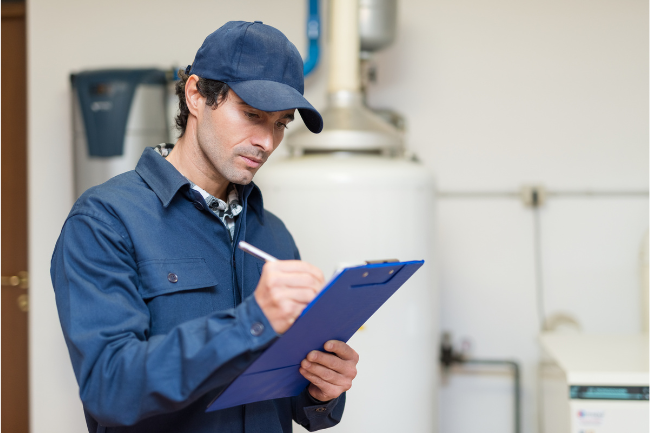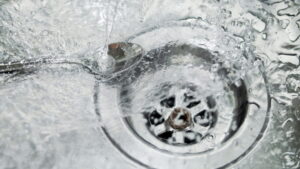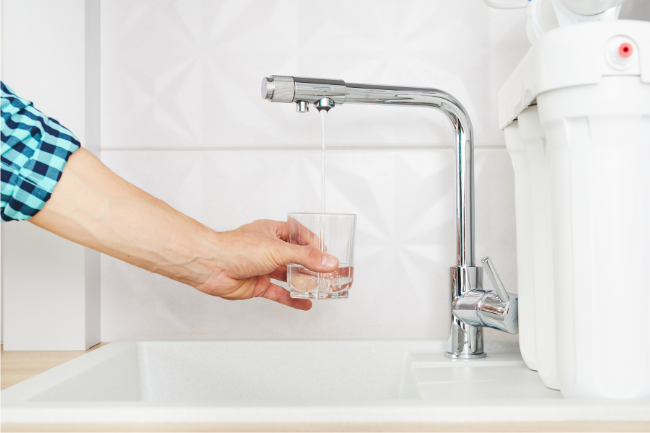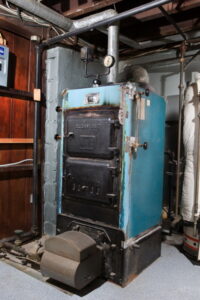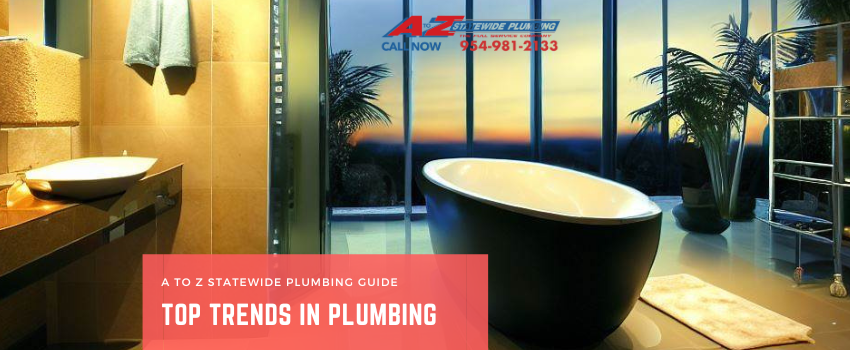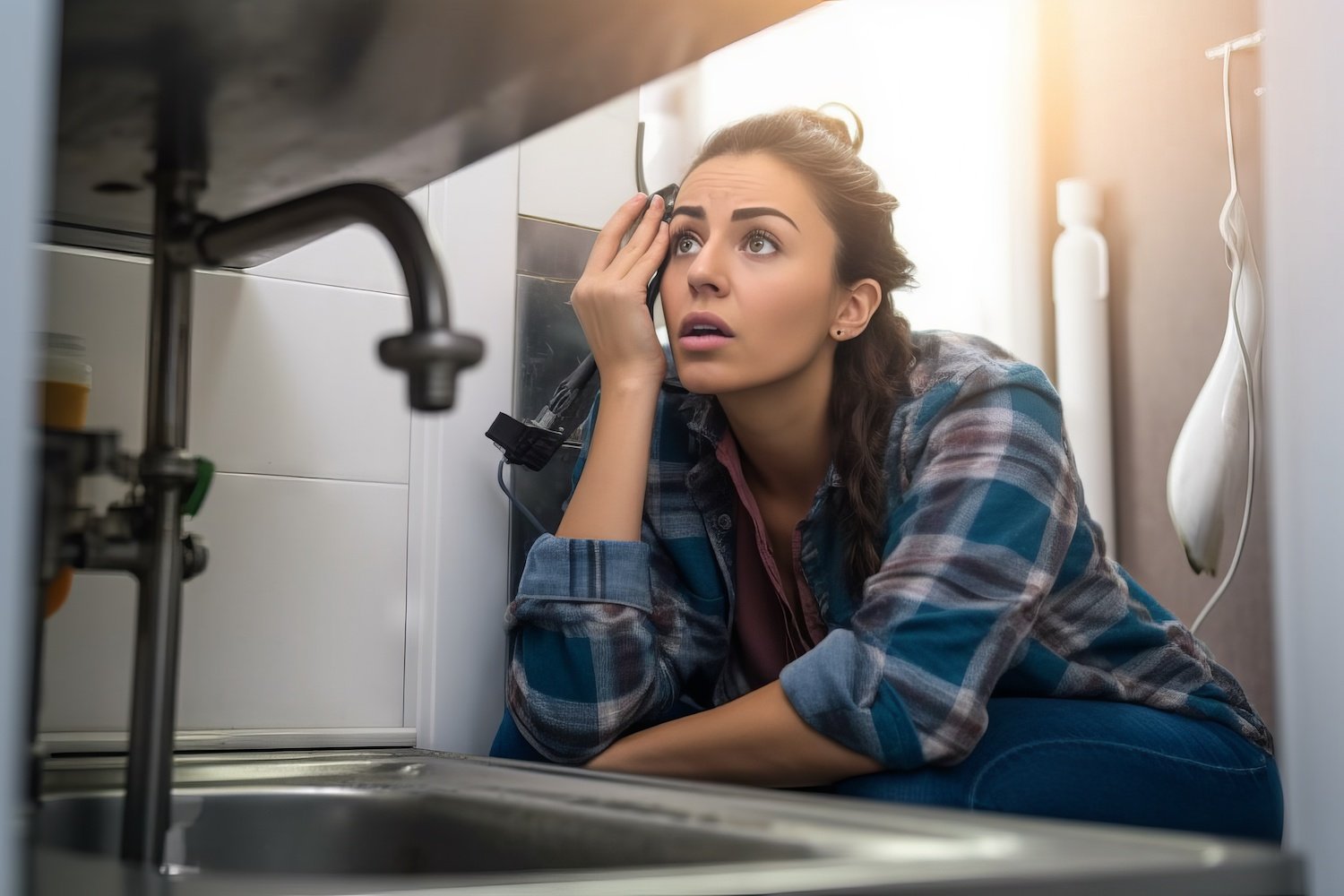Maintaining your home’s plumbing system is crucial to ensure it operates efficiently and to prevent minor issues from becoming major problems. But how often should you schedule maintenance? This guide will help you understand the optimal frequency of plumbing maintenance for various components of your home’s system.
In Ottawa, Canada, the accepted rule of thumb recommended by local plumbing professionals is to have your home’s plumbing system thoroughly inspected at least once every two years. However, certain components such as water heaters should be checked annually due to their regular use and potential for sediment build-up. It’s worth noting that the age, usage, and the type of plumbing system can affect this frequency. Older homes or homes with residents prone to causing plumbing issues might require more frequent check-ups.
Let’s explore this topic in greater detail.
Regular Inspections and Preventive Maintenance
As a rule of thumb, you should have a professional plumber perform a comprehensive inspection and preventive maintenance of your entire plumbing system every two years. However, certain parts of your system may require more frequent checks.
1. Water Heaters
Water heaters should be inspected at least once a year. Over time, sediment can build up in the tank, reducing its efficiency and lifespan. An annual inspection and flushing of the tank can help prevent these issues.
Inspecting your water heater annually is essential for several reasons. Firstly, it ensures the efficiency of your system. Sediment build-up in the tank can cause your water heater to work harder than necessary, leading to higher energy bills. Secondly, regular inspections can increase the lifespan of your water heater. If not addressed, accumulated sediment can cause the tank to corrode, leading to leaks or a complete system failure. Finally, annual inspections can help identify minor issues before they escalate into major, costly problems. Hence, prioritizing regular water heater inspections is an integral part of home maintenance.
2. Drains
While you may not need a professional to check your drains regularly, it’s important to keep an eye on them. Slow or clogged drains can indicate a larger problem in your plumbing system. Consider having a professional drain cleaning every year to prevent serious clogs or backups.
Inspection of drains is a critical aspect of overall plumbing maintenance. Drains, by their very nature, handle a substantial amount of waste and debris. Over time, this can lead to build-up and potential blockages. Regular inspection of drains ensures that any build-up is identified and removed promptly, preventing serious clogs that can result in severe damage to your plumbing system. Moreover, drain inspections can uncover larger systemic issues, such as tree root intrusions or pipe deterioration, which are best addressed early to avoid costly repairs. Hence, by facilitating early detection of potential issues and ensuring the efficient operation of your plumbing system, regular drain inspections significantly contribute to the longevity and health of your home’s plumbing.
3. Faucets and Showerheads
Faucets and showerheads should be checked every few months for leaks or drips. While these may seem minor, they can lead to significant water waste and higher utility bills over time. Inspecting faucets and showerheads regularly is an essential task as part of your home’s maintenance routine. These components are frequently used in your household, and even minor issues like a slow leak can escalate into significant problems if not addressed timely. Dripping faucets or showerheads may not seem like a major concern, but they can lead to substantial water wastage over time, resulting in increased utility bills. Furthermore, constant leaks can cause water damage to your bathroom fixtures, walls, or floor, leading to costly repairs. Regular inspection can identify such problems early on, allowing for immediate repair or replacement and saving you money in the long run. Therefore, to maintain the efficiency of your plumbing system and the overall health of your home, frequent checking of faucets and showerheads is imperative.
4. Toilets
Toilets should be inspected twice a year. Check for signs of leaks, running water, or weak flushing. A leaking toilet can waste a lot of water, while weak flushing might indicate a clog or other issue in the sewer line. Inspecting toilets matters for several reasons. First, toilets are a central component of your home’s plumbing system and their proper functioning is crucial for maintaining a clean and healthy living environment. Second, a leaking or constantly running toilet can significantly increase your water bills due to the large amount of wasted water. Furthermore, issues like weak flushing could be a sign of a more serious problem in your sewer line, such as a blockage or breakage, which could lead to serious damage if not addressed promptly. Routine inspections of toilets help to identify these potential issues early on, enabling timely repairs and preventing costly damage. Hence, regular toilet inspections are a key aspect of proactive home maintenance and efficient water use.
If your home has a sump pump, it should be inspected and tested at least once a year, ideally before the rainy season starts. A malfunctioning sump pump can lead to basement flooding.
6. Septic Systems
If your home has a septic system, it should be pumped and inspected every three to five years, depending on usage and household size. Regular maintenance can prevent unpleasant and costly septic backups. Inspecting septic systems holds considerable significance for various reasons. Primarily, a well-maintained septic system is crucial to the health and safety of your home and the surrounding environment. Septic systems treat and dispose of household waste water, and if not properly maintained, they can contaminate local water sources such as wells or groundwater. Regular inspections can help identify issues such as leaks or blockages in the system, enabling early intervention and preventing expensive, large-scale repairs or replacements. Additionally, a well-functioning septic system contributes to the overall property value, making regular inspections an investment in your home. Hence, septic system inspections are an essential component of responsible home and environmental stewardship.
7. Pipes
Your home’s pipes should be inspected every two years for signs of corrosion, leaks, or damage. However, if your house is older, or if you have had issues with leaks or water quality, you may want to schedule inspections more frequently.
Inspecting pipes is a critical aspect of home maintenance for several reasons. Firstly, pipes are the lifelines of your home’s plumbing system, and any damage or malfunction can disrupt the entire household. Regular inspections can identify early signs of corrosion, leaks, or other damage that could potentially lead to significant issues such as water contamination or serious leaks leading to structural damage. Secondly, pipe inspections can help monitor the quality of water in your home. Any discoloration, odor, or change in taste can indicate pipe corrosion or contamination, which can pose serious health risks if not addressed promptly. Lastly, routine pipe inspections can extend the life of your plumbing system, saving you money in the long run by preventing costly repairs or replacements. Therefore, regular pipe inspections are essential for maintaining a safe and efficient home.
Preventive maintenance can save you money in the long run by catching potential issues early before they become expensive problems. Plus, a well-maintained plumbing system can contribute to the overall value of your home.
